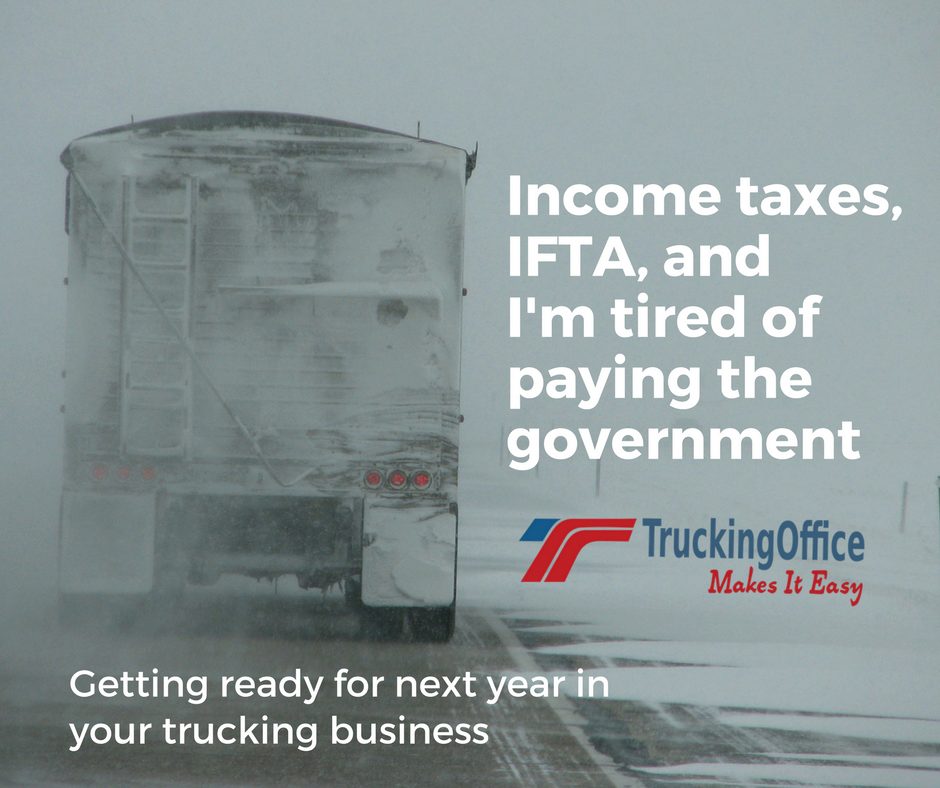After days on the road, coming home might mean there’s a list waiting: the Honey-Do list. It’s not that those people at home can’t do those tasks themselves. Maybe they want to enjoy watching you do them. Maybe it’s a team effort. But home maintenance is one of those things we can’t ignore for long, any more than we can ignore our truck maintenance. Which is why I’m talking about the CVSA inspections in the middle of December – yeah, I don’t want to think about that yet either.
Maybe they want to enjoy watching you do them. Maybe it’s a team effort. But home maintenance is one of those things we can’t ignore for long, any more than we can ignore our truck maintenance. Which is why I’m talking about the CVSA inspections in the middle of December – yeah, I don’t want to think about that yet either.
How did your rig do during the CVSA?
Did you have trouble back during the CVSA? Get a citation? Get grounded until you got your rig repaired? I’ll bet you don’t want to go through that again.
For some people, they find out the dates of their summer vacation as soon as the CVSA Roadcheck Blitz dates are announced. They’re just going to avoid the whole thing. I can’t blame them.
For others, it’s the reminder that it’s time to check over their equipment and fix things up before the inspectors get nosy. It’s one way to roll. At least they’re making the effort to get things in shape.
What does the smart owner-operator do? That trucker isn’t waiting.
You got your rig in shape before the winter rolled in. Checked the tires, the coolant system, and put new wiper blades on. That’s just smart trucking. But being an owner means considering the future of your equipment and making plans for investments – not only for future purchases but to keep this equipment in shape and making you money now.
Trucking Maintenance Calendar: How to Schedule It
Preventive maintenance helps fleet owners and drivers ensure that their vehicles are safe and meet DOT regulations. I find that a truck maintenance log is a good way to keep track of what’s been done or needs doing. The goal is to reduce safety risks and increase the lifespan of the vehicle.
So, that sounds like a good plan. But, where do you begin? First, you should choose whether you will use a manual method or a trucking management software system. Next, you need to create a checklist of routine truck maintenance items. For example, the list can include things such as oil and filter changes, transmission fluid, cooling system, drive shafts, braking system, steering and suspension, windshield wiper system, seatbelts, just to name a few.
You should also check the vehicle owner’s manual for trucking maintenance intervals recommended by the manufacturer. And don’t forget the vehicle operator. Drivers must be properly trained to monitor vehicle safety systems and recognize when it’s time to address a specific problem.
The most accurate and less time-consuming method for keeping a truck maintenance calendar is with our TruckingOffice TMS system. Learn more by taking advantage of the 30-day free trial. You’ll see that we help truckers save time, stay safe, and make more money.
Truck maintenance at home
I was scouting out the DOT Safety Inspection regs and found a website offering a phone app. It claimed to track the items the DOT would inspect. Upon further inspection, I figured out it wasn’t an app for truckers, it’s a data tracker that doesn’t do any analysis, doesn’t notify the user of upcoming inspection deadlines and wants over $300 per year to remind me to inspect my rig. That’s not very useful, is it? I finally found the US DOT Annual Inspection Report online, which at least is a PDF that I could print out and do my own regular weekly inspections. But it’s a piece of paper or a file on my phone or tablet, not a way to organize my truck maintenance. It’s not keeping track of anything for me. I’m still doing the work.
When we’re at home, it’s the obvious time to manage some tasks that can’t be done on the road. Sure, we can get a new set of mud flaps while we’re on the road, but is that the best time and place to install them? With the right tool that can tell us what needs to be done, we can plan to have our favorite mechanic handle the work… instead of the guy at the truck stop who you don’t know.
In the end, when we get home, we don’t want to sit around after spending too much time sitting around our cabs. Sitting at a computer is still sitting, right? Now that we have wifi and Internet streaming, we don’t have to record the game we want to watch when we get home. We can get it right in our cabs. Time at home needs to be time we get away from sitting and get up and move.
It’s the end of the year: Income taxes, IFTA and I’m tired of paying the government
Truck maintenance can be done at home, if you’re the handy type that likes to get into an engine. Trucking business maintenance can be done at home in front of a computer screen.
Or not. I think handling trucking business in the cab is a much better practice. After all, you’re stuck there when your HOS limits kick in. Why not do the trucking management business then instead of at home?
January is always a kick in the pants. We’ve got the IFTA. We need to start thinking about our income taxes and who’s going to do them this year. If you have a driver, there’s more paperwork to manage. I know a lot of truckers who turn it all over to their accountants. That’s a smart move, as far as I’m concerned. I make money on the road. I don’t make money trying to figure out my tax deductions. Paying a professional makes more sense. Besides, a good accountant is going to be sure you don’t overpay or underpay your income tax.
What do IFTA, income tax and maintenance all have in common?
Organization. Stay organized and all those things come together pretty easily. Lose track of something and it’s like a ticking bomb… waiting to go off.
Don’t wait to get stuff done. If you need motivation, well, it’s the end of the year. It’s time to get those things organized to start off next year better. Use that DOT safety check form and go over your truck. Get the work done now before it becomes an emergency on the road. Find a way to manage your trucking business efficiently while you’re in your cab, not at home. (We’ll recommend TruckingOffice trucking management software, of course. Want a free trial to check it out? No problem!) Get those tax papers into one box and start sorting.
All this money you’re saving by being organized can get you started toward buying new equipment. That’s a future to invest in.







Trackbacks/Pingbacks